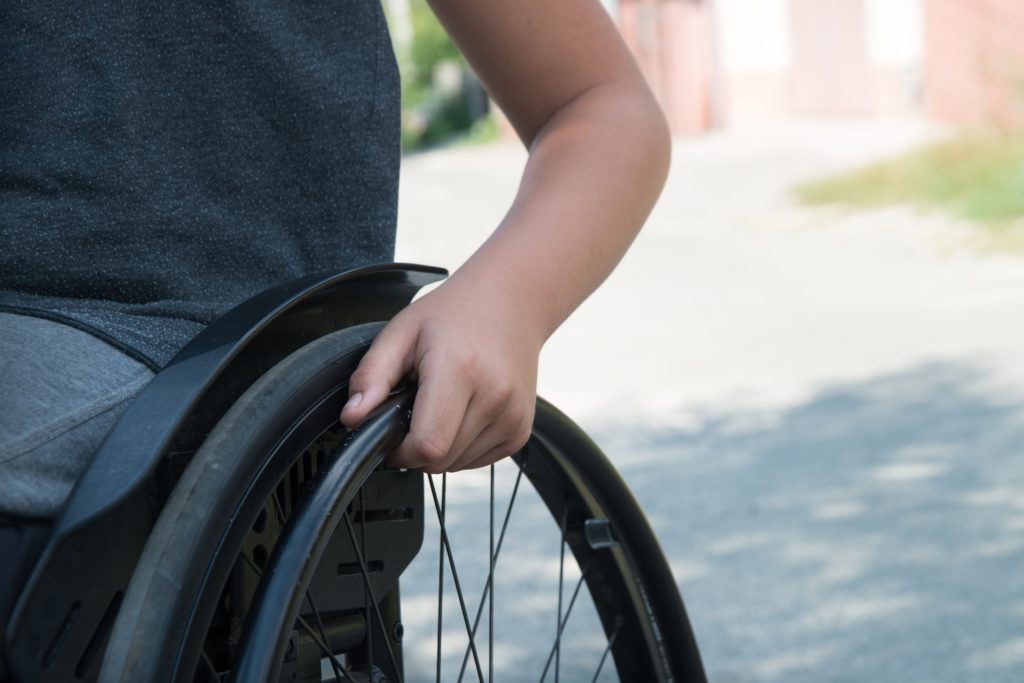The right to education is a fundamental right, officially recognized by the French state, which often presents itself as a defender of human rights. However, this right remains unequally guaranteed in its overseas territories. While educational inequalities explain themselves in part by social, cultural, and economic factors, they are also rooted in a deeper legal problem—recently highlighted by a decision of the Council of Europe’s European Committee of Social Rights. Beyond these socioeconomic causes, the persistence of inequalities can be explained by a legal framework that excludes the overseas territories from certain fundamental protections.
An unequally guaranteed right to education
France signed the European Social Charter of 1961, which guarantees different fundamental rights, including the right to education. However, it excluded its overseas territories when signing, and has never reconsidered this decision.
It could have been done differently: the Netherlands ensured that its overseas territories benefited from this Charter. This creates a situation like the island of Saint-Martin, where the Charter applies to the Dutch part, but not to the French part. According to French lawyer Sabrina Cajoly, “this is a matter of equality of rights between the territories, and also a reputational issue for the homeland of human rights” (Péru-Gelly, 2025).
The National Consultative Commission of Human Rights has expressed itself on this subject, mentioning a “colonial clause.” This clause formerly allowed a treaty not to be applied to part of a territory. Such clauses were used to reduce the geographical scope of a legislative text to a particular territory, so that a specific regime would govern it. It finally specified that such clauses should no longer exist, particularly in the field of human rights (Péru-Gelly, 2025).
The European Committee of Social Rights of the Council of Europe has issued a decision on March 19, 2025, concerning the discrimination by France directed against the populations of overseas territories, on the basis of the application of the European Social Charter.
The International Federation for Human Rights (FIDH) filed a complaint against France for potential violations of social and economic rights in Guadeloupe and Martinique. To this end, the FIDH notably invoked Articles 11 – on the right of children to protection – and E – on non-discrimination.
The French government challenged the admissibility of this complaint, arguing that the Charter did not apply to the territories concerned by the complaint (Comité européen des Droits sociaux, 2025). The Committee concluded that it could not adjudicate on this request, because the text invoked did not in fact apply to the overseas territories, with France having excluded them when signing (Lingibé, 2025).
Structural obstacles: poverty, isolation, and cultural specificities
A selection process occurs at the entrance to the school system due to an insufficient number of places to accommodate all young people (Péru-Gelly, 2025). Indeed, areas without road access show higher rates of non-enrollment, as do children from single-parent families or families without access to water and electricity (Belanyi, & Plancke, 2024). As an illustration, a quarter of young people aged 15 to 19 in Guadeloupe are neither employed, nor in education, nor in training, which is twice as high as in mainland France (Chadli, 2023).
The geographical isolation and the deficiencies of school transportation
In the Antilles, the school transportation is not adapted to class schedules (particularly for vocational programs), forcing students to get up early (sometimes as early as 4 a.m.), which is not favorable to their concentration or recovery (Lorion et al., 2021). Furthermore, this transportation is often expensive, and the roads it uses are in poor condition and therefore dangerous (Chadli, 2023).
In Guyana, a school located in Taluen, near the border with Suriname, illustrates the severe logistical difficulties faced by the students, some of whom have to travel nearly two hours by canoe to access educational services. These conditions complicate the delivery of school material, which often does not arrive as planned (FS-SNUipp, 2023).
A double handicap: invisibility and lack of appropriate resources
Children with disabilities also face certain challenges. First of all the identification of these students is complicated by the lack of medical and social infrastructures. Prevention devices are therefore not implemented correctly and are inadequate, notably with regard to diagnostic and guidance tools.

In addition, the Departmental Houses for Disabled People (MDPH) have limited means, which leads to very long delays in implementing the adapted schooling plan (at least six months for a first response from the MDPH according to the SNES-FSU union) (Lorion et al., 2021).
The insufficient means imply that the needs of children with disabilities are not being met. As a matter of fact, according to the National Education Services, 57% of these students require an individual support staff. In Martinique, for example, half of the students with disabilities do not have a support assistant. In Guadeloupe, in 2021, 2 out of 43 visually impaired or autistic students received support (Lorion et al., 2021).
Between cultural identities and climate constraints in access to education
The schools have the tendency to close frequently, and the multiple reasons are often linked to the specific characteristics of the areas concerned. The social tensions cause strikes, which provoke recurring closures. In addition, the climatic and environmental conditions often represent situations of force majeure, which adds a unique feature to the overseas territories.
In 2023, 25% of students did not benefit from school continuity, compared to 5% in mainland France. The students in Guadeloupe and Martinique therefore have fewer school days than the children living in mainland France (Chadli, 2023). Indeed, the climate emergency has a real impact on the environmental conditions in the Antilles. This implies special arrangements to make sure that schools meet the standards planned in the Earthquake Plan of the Antilles.
De facto, the seismic standards in the Antilles have been significantly delayed, which is alarming. In 2020, 64% of schoolchildren in Martinique were studying in an environment likely to be affected by earthquakes (Lorion et al., 2021).
In a high school in Western Guyana, where more than 1,500 students are enrolled (for a maximum capacity of 900 students), the average daily absence rate is 20%. The lack of justification for student absences, combined with the impossibility of the employees of the facility to process 300 absences per day, tends to normalize absenteeism (Lorion et al., 2021).
What are the prospects of an equitable education in the future?
The students in French overseas territories are thus victims of discrimination with respect to those in mainland France. However, certain initiatives have been proposed to improve the quality of their education in the affected territories and thus bring about greater balance.
On a specific scale, the organization of catch-up days could guarantee the same school time for children in metropolitan France and those in overseas territories. In addition, the creation of boarding schools and special school buses, with adapted timetables, would facilitate practical access to schools (Chadli, 2023).
Furthermore, the increase of the number of escort workers for children with disabilities, prioritizing them for full-time contracts, and strengthening their initial training would allow greater inclusion. Greater awareness of teachers to detect and support students with disabilities could also contribute to a positive change (Chadli, 2023).
From a more general point of view, the French authorities also have a key role to play. A standardization of the legislation applicable throughout French territory—with regard to the application of human rights—would equalize the opportunities in terms of the right to education, and would not prevent taking into consideration the climatic and cultural differences (Péru-Gelly, 2025). Such reforms should also be accompanied by explicit recognition of legal equality between all French territories, without exception.

Finally, organizations like Humanium dedicate their daily efforts to protecting children’s rights and providing essential help, from education to mental health care. A veritable and durable change requires both global awareness and local action. That is why we invite you to support Humanium’s mission, whether by volunteering, making a donation, or sponsoring a child in need.
Written by Morgane Schmutz
Internally proofread by Aditi Partha
Translated by Kathrin Lukas
Revised by Ivana Kacunko
Bibliography:
Belanyi, J., & Plancke, A. (30 octobre 2024). L’école dans les territoires ultra-marin : Les problématiques de la non-scolarisation. Extrait de la Fondation Jean Jaurès accessible sur https://www.jean-jaures.org/publication/lecole-dans-les-territoires-ultramarins-les-problematiques-de-la-non-scolarisation/ , consulté le 23 juillet 2025.
Bondaz, A., & Desbonnets, M. (31 juillet 2023). Fiche n°1 : Territoires ultramarins, renforcer la souveraineté et l’intégration régionale en Indo-Pacifique. Extrait de la Fondation pour la Recherche Stratégique, accessible sur https://www.frstrategie.org/publications/fiches-indo-pacifique/n1-territoires-ultramarins-renforcer-souverainete-integration-regionale-indo-pacifique-2023 , consulté le 23 juillet 2025.
Chadli, M. (20 mars 2023). Rapport – Services publics aux Antilles : garantir l’accès aux droits. Extrait des Défenseur des Droits, accessible sur https://www.defenseurdesdroits.fr/rapport-services-publics-aux-antilles-garantir-lacces-aux-droits-259 , consulté le 25 juillet 2025.
Comité européen des Droits sociaux. (19 mars 2025). HUDOC-ESC. Extrait de HUDOC-ESC, accessible sur https://hudoc.esc.coe.int/fre/#%7B%22sort%22:[%22escpublicationdate%20descending%22],%22escdcidentifier%22:[%22cc-240-2024-dadmissandimmed-fr%22]%7D , consulté le 23 juillet 2025.
FS-SNUipp. (12 décembre 2023). Outre-mer : l’école lance un SOS ! FS-SNUipp. Extrait de FS-SNUipp, accessible sur https://www.snuipp.fr/publications/articles/outre-mer-l-ecole-lance-un-sos , consulté le 17 juillet 2025.
Lingibé, P. (7 avril 2025). Les ultramarins seraient-ils des français à part entière ? Par Patrick Lingibé, Avocat. Extrait de Village de la Justice, accessible sur https://www.village-justice.com/articles/les-ultramarins-seraient-ils-des-francais-part-entiere,52982.html , consulté le 25 juillet 2025.
Lorion, D., Mathiasin, M., Obono, D., & Rilhac, C. (1 juin 2021). Rapport d’information, n° 4204 – 15e législature. Extrait de l’Assemblée nationale, accessible sur https://www.assemblee-nationale.fr/dyn/15/rapports/om/l15b4204_rapport-information , consulté le 25 juillet 2025.
Péru-Gelly, J. (20 février 2025). Deux poids deux mesures, quand la France exclut ses Outre-mer d’un traité de protection des droits humains. Extrait de Franceinfo, accessible sur https://la1ere.franceinfo.fr/deux-poids-deux-mesures-quand-la-france-exclut-ses-outre-mer-d-un-traite-de-protection-des-droits-humains-1563157.html , consulté le 17 juillet 2025.
Plancke, A. (30 juin 2025). Le décrochage scolaire et la déscolarisation en outre-mer : le cas de la Guyane. Extrait de la Fondation Jean-Jaurès, accessible sur https://www.jean-jaures.org/publication/le-decrochage-scolaire-et-la-descolarisation-en-outre-mer-le-cas-de-la-guyane/ , consulté le 23 juillet 2025.


